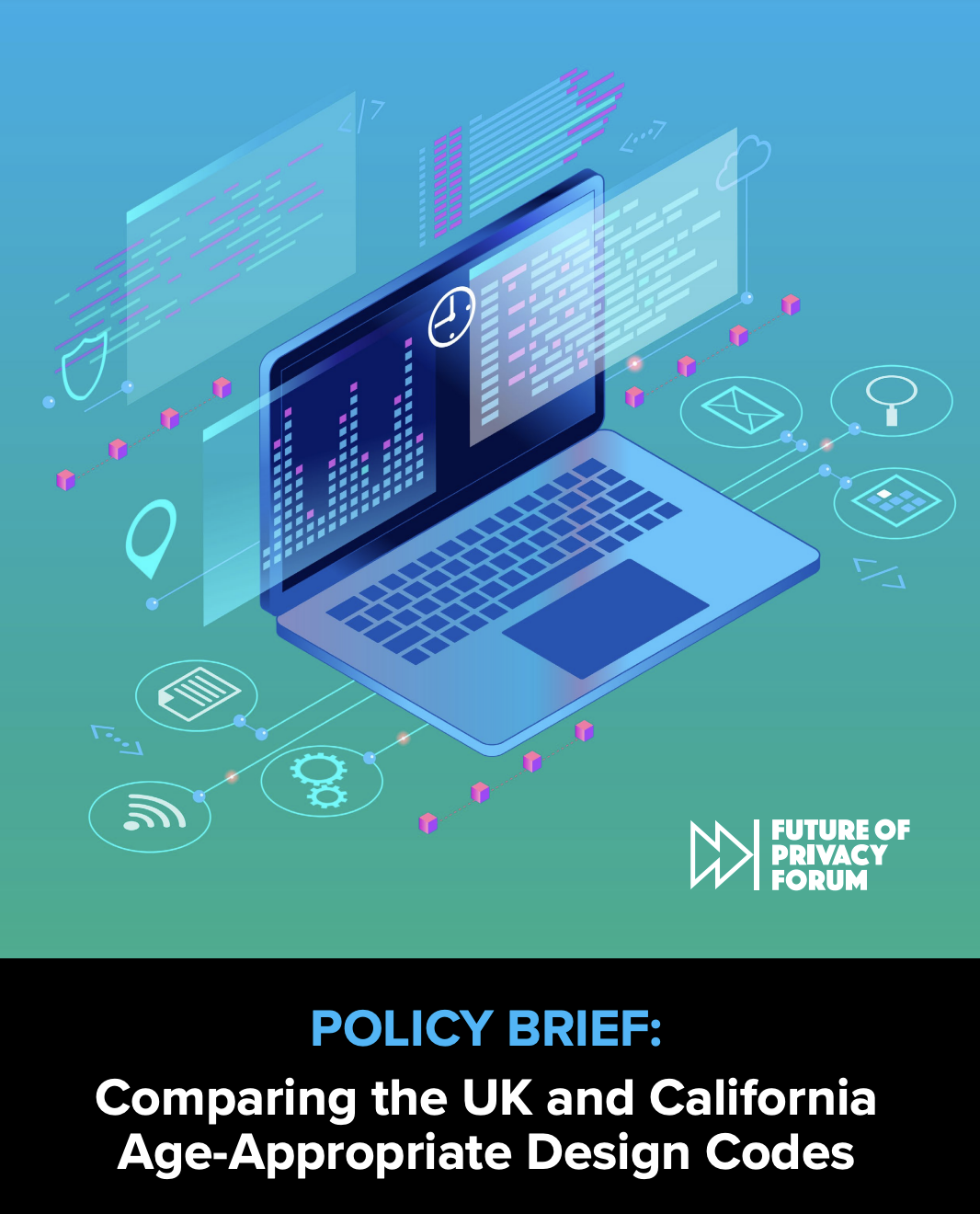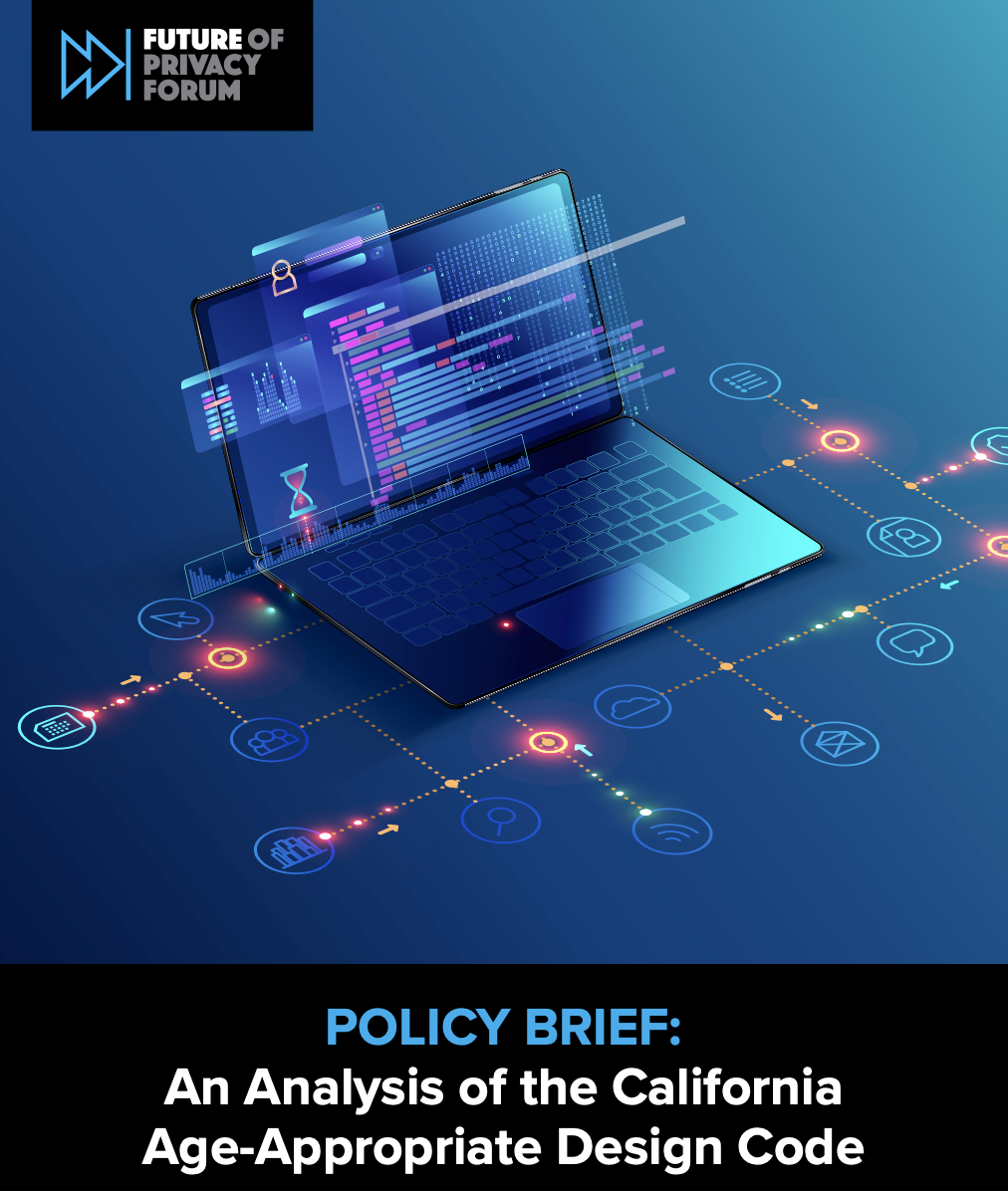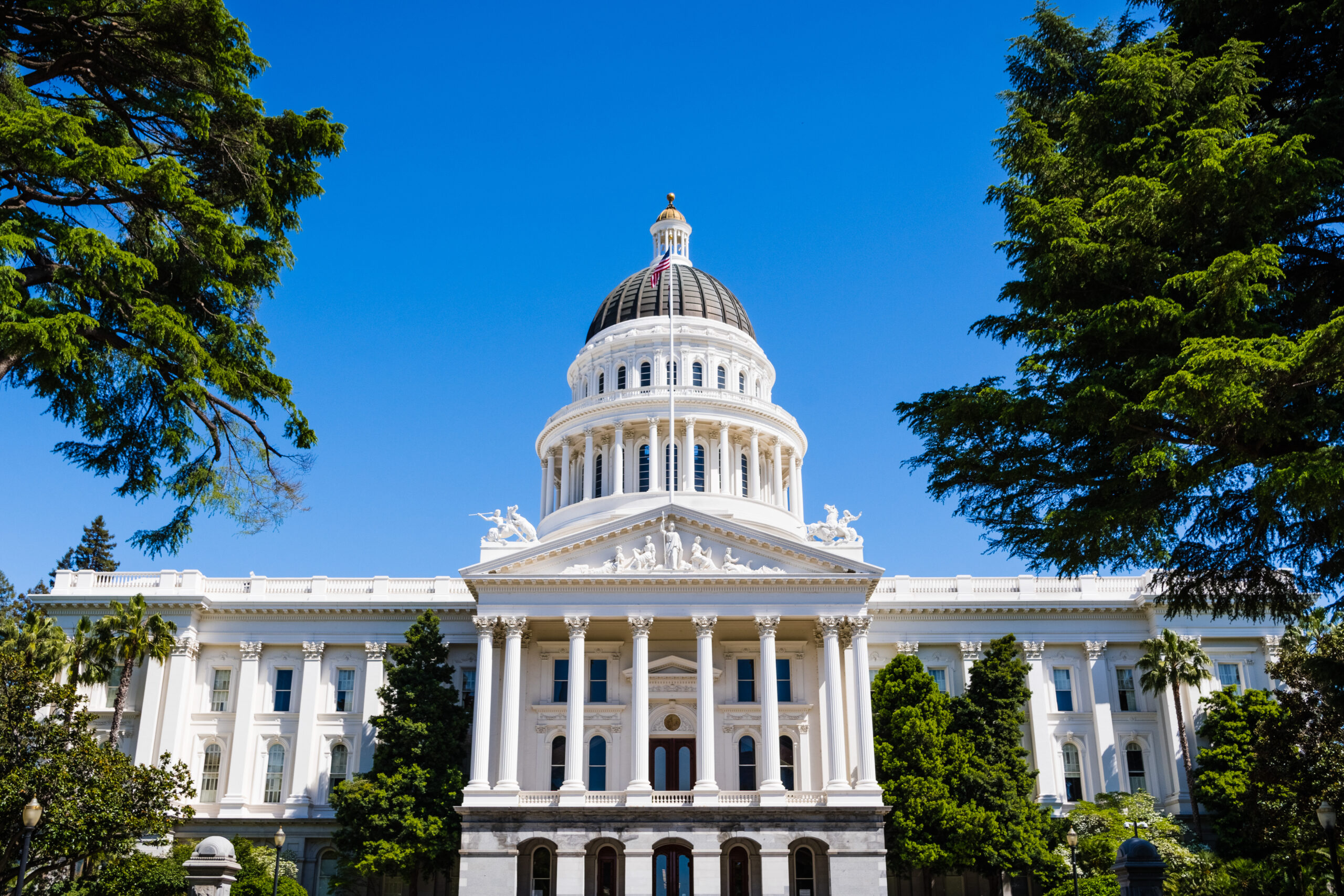Showing results for code2024 20abs 20abs promo code mlai code2024 20abs

Five Big Questions (and Zero Predictions) for the U.S. State Privacy Landscape in 2023
[…] action. What, if any, additional language or concepts from ADPPA will gain traction at the state level? 3. Have we entered the Age of the Age-Appropriate Design Code? While ‘comprehensive’ privacy laws and proposals continue to capture the bulk of the privacy commentariat’s attention, it is likely that the most significant U.S. consumer privacy […]

FPF Releases Comparative Analysis of California and U.K. Age-Appropriate Design Codes
The Future of Privacy Forum (FPF) today released a new policy brief comparing the California Age-Appropriate Design Code Act (AADC), a first-of-its-kind privacy-by-design law in the United States, and the United Kingdom’s Age-Appropriate Design Code. While there are distinctions between the two codes, the California AADC, which is set to become enforceable on July […]

Event Report: FPF Side Event and Workshop on Privacy Enhancing Technologies (PETs) at the 2022 Global Privacy Assembly (GPA)
[…] to clarify when and how PETs should be deployed in different scenarios to ensure compliance with privacy laws; and providing tailored advice to lawmakers that wish to promote the use of PETs for the pursuit of public interest tasks and the responsible use of data. On this note, Gilad Semama noted that PETs seem […]

Meet David Sallay, FPF’s new Youth & Education Privacy Director
[…] is going on in youth & education privacy today…What’s one thing that you are optimistic or encouraged about? I am encouraged by the move to age-appropriate design codes in some jurisdictions since it should lead to more products mapping better to the expectations of parents, educators, and children. What’s one thing that you are […]

FPF Releases Analysis of California’s New Age-Appropriate Design Code
[…] Education team is pleased to publish a new policy brief that builds on this first brief by providing a comparative analysis of the United Kingdom’s Age Appropriate Design Code (UK AADC) to the California AADC, which was modeled after the UK AADC. Learn more and download the UK and CA AADC Comparative policy brief here. New report […]

Judge declares Buenos Aires’ Fugitive Facial Recognition System Unconstitutional
[…] the court concluded an amparo action would provide an effective and timely remedy, as opposed to the contentious administrative procedure set forth in the Administrative and Tax Code. Additionally, as a constitutional recourse, an amparo action allowed the court to study the constitutionality of the incorporation of the SRFP into Buenos Aires’ public security […]

FPF Participates in FTC Event on “Commercial Surveillance and Data Security” Proposed Rulemaking
[…] outside the U.S. to evaluate the merits of different regulatory approaches. She specifically highlighted the privacy interests of children and the United Kingdom’s recent Age Appropriate Design Code, which includes transparency and data minimization standards. Mr. Erwin also highlighted the need to protect childrens’ privacy, while cautioning that some approaches can result in “privacy […]

Age-Appropriate Design Code Passes California Legislature
Update: On Sep 15, 2022, California Governor Gavin Newsom signed AB 2273, the California Age-Appropriate Design Code Act. The law will apply to businesses that provide online services, products, or features likely to be accessed by children and broadly requires businesses to implement their strongest privacy settings by default for young users up to the age […]

Introduction to the Conformity Assessment under the draft EU AI Act, and how it compares to DPIAs
[…] risks’ (which trigger a set of stringent obligations, including conducting a CA), ‘limited risks’ (with associated transparency obligations), to ‘minimal risks’ (where stakeholders are encouraged to build codes of conduct). The draft AIA is being introduced in an already existing system of laws that regulate products and services intended to be placed on the […]

FPF at CPDP LatAm 2022: Artificial Intelligence and Data Protection in Latin America
[…] secrecy claims are not able to prevent individuals from effectively exercising their privacy rights. Panelists discussed issues such as the necessity of disclosing application or software source code when providing “explainability” of decision-making to data subjects, and debated the level of detail necessary in disclosures required under transparency obligations. Ms. Demetzou focused on how […]
